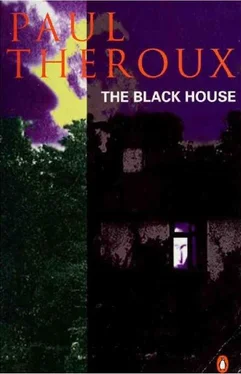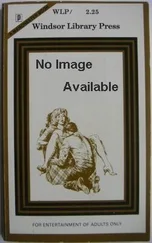Paul Theroux - The Black House
Здесь есть возможность читать онлайн «Paul Theroux - The Black House» весь текст электронной книги совершенно бесплатно (целиком полную версию без сокращений). В некоторых случаях можно слушать аудио, скачать через торрент в формате fb2 и присутствует краткое содержание. Год выпуска: 1996, Издательство: Penguin Books, Жанр: Современная проза, на английском языке. Описание произведения, (предисловие) а так же отзывы посетителей доступны на портале библиотеки ЛибКат.
- Название:The Black House
- Автор:
- Издательство:Penguin Books
- Жанр:
- Год:1996
- ISBN:нет данных
- Рейтинг книги:4 / 5. Голосов: 1
-
Избранное:Добавить в избранное
- Отзывы:
-
Ваша оценка:
- 80
- 1
- 2
- 3
- 4
- 5
The Black House: краткое содержание, описание и аннотация
Предлагаем к чтению аннотацию, описание, краткое содержание или предисловие (зависит от того, что написал сам автор книги «The Black House»). Если вы не нашли необходимую информацию о книге — напишите в комментариях, мы постараемся отыскать её.
The Black House — читать онлайн бесплатно полную книгу (весь текст) целиком
Ниже представлен текст книги, разбитый по страницам. Система сохранения места последней прочитанной страницы, позволяет с удобством читать онлайн бесплатно книгу «The Black House», без необходимости каждый раз заново искать на чём Вы остановились. Поставьте закладку, и сможете в любой момент перейти на страницу, на которой закончили чтение.
Интервал:
Закладка:
She lifted the plate. “Would you like another piece of fruitcake?”
“I’m fine,” said Munday. But he was shaken, his mouth was dry. He took a sip of tea and said, “I must go—I’ll have to find a taxi.”
“I’m sure mummy would love to take you to the station.”
“That won’t be necessary,” said Munday.
“I’ll just have half,” said Alice, reaching for the cake. “I shouldn’t—I’m supposed to be dieting.” She broke a piece and ate it, taking large girlish chews. “Because I’m on the pill.”
“Then you are a big girl,” said Munday, and now he saw her as only insolent, made so by the mother.
“Mummy doesn’t think so.”
“That was Martin,” said Claudia, entering the room. “He’s going to be late.” And as if she had guessed at the conversation that had been going on, intuited it from the silent man and girl, she said accusingly, “What have you been talking about behind my back?”
“Doctor Munday was telling me about his African tribes,” said Alice, gathering the plates.
“That’s right,” said Munday, astonished at the girl’s invention. In that girl was a woman, but a corrupt one.
“You’re not going?” Claudia said, seeing Munday stand.
“I’ll miss my train if I don’t hurry,” said Munday. He kissed Claudia at the door; she held on and made him promise to come again. She pressed against him, and he was nearly aroused, because he was looking past her at the girl with the tray on one arm walking through the room on long dancer’s legs, showing her tight buttocks as she picked up an ashtray, straightened a lampshade.
“You haven’t forgotten,” said Claudia, feeling him harden. He pulled her head to his shoulder and watched Alice slowly leaving the room, tossing the loose rope of her hair. Then he said, “No.”
Waiting with Emma at the platform gate in Waterloo Station, Munday heard “Hello there,” and felt a tug on his sleeve.
He turned and greeted the stranger in a polite way, and then he remembered the face and said nothing more. It was the tall man from the lecture who had contradicted him.
“You’re Munday,” said the man. “I thought I recognized you. Up for the day?”
“Yes.”
“Shambles, isn’t it?” They were in a crowd, pressing toward a gate, where a conductor stood clipping tickets.
Inside the gate the man said, “We’ve got to be up front—Crewkeme’s got a rather short platform.”
“I know,” said Munday. “We’ve been this way before.”
“Will you join me?” The man was smiling at Emma. “That would be nice,” said Emma.
“We haven’t been introduced,” said the man. “My name’s Awdry.”
He shook Munday’s hand and they made their way up the platform and boarded the train. Awdry slid open the door of a first-class compartment. He said, “This one looks as good as any.”
“I’m afraid we’re in second,” said Munday, relieved that he would not have to endure the man’s company for three hours, and embarrassed at having to admit he had a cheaper ticket.
“Oh, what a shame,” said Awdry. “You’re way down there.” He pointed down the passage with his umbrella.
“Perhaps we’ll see you in the village,” said Emma.
“I hope so,” said Awdry. “I’ve got a crow to pluck with your husband.” He turned to Munday and said genially, “Your letter—‘confused observations of a generation of misfit District Commissioners’—all that.” He laughed. “I was livid when I read it, but I think I can discuss it sensibly now.”
“That’s good to hear,” said Munday.
“I’ll be in touch with you—you’re up at the Black House still, I take it? Say, you’d better get a move on or you won’t find a seat!”
They didn’t find a seat. The train was filled with returning commuters, who had taken all the seats while they had been standing talking to Awdry. Munday and Emma stood in a drafty passage outside a second-class compartment as far as Basingstoke. Inside the overbright compartment they drowsily read the evening papers, which were full of news of an impending miners’ strike; and when, at Salisbury, the compartment emptied, and they were alone, Emma spoke of Margaret: she was doing part-time secretarial work, she was seeing a man, she had put on weight.
“Alec is at the end of his tether,” said Munday. He made no mention of Claudia, but heard repeatedly Alice’s cheerless phrase about her mother, and saw the young girl in the room, dancing past him as he embraced Claudia.
“What did the doctor have to say?”
“Him? He examined me, said to take it easy,” said Munday. “He was a bit of a fool. Kept going on about Father Dowle.”
Emma put the paper down and opened her novel to the first page. She flexed the book and began to read.
Munday said, “He told me my heart’s in a rather dicky state. That scar business. Blood pressure’s way up.”
Emma looked at him closely, “Did he say it was serious?”
“I’m not well, Emma,” Munday said. “Not well at all.”
From the lighted carriage the night was black, but at Crewkeme they saw the full moon, and across the road from the black house, in the moonlight, a field of sleeping cows.
But even then, returning after a tiring day in London, their eyes heavy, their feet burning, hungry and yet unable to eat, they saw the house as no more familiar to them than it had been on that first day. Munday kicked open the gate with a clang; now he was sure of his feelings. It was in darkness, his England, all he could lay claim to; it was—everyone said it and he agreed—the Black House. The day in London taught him that he could not live there, cast up like the others whose only friends were those who had been similarly reduced in size by their years in Africa. He had expected more, but he had stayed away too long: no one was waiting for him. He was resigned to the Black House. He went inside. The stove had gone out, the rooms were cold, the dampness had crept back leaving on the crumble of its streaks a smell of mold. It was too late to make a fire, and without hot water for the bottles they slept between cold sheets.
They were not less afraid of the house, and they were conscious of an awful demeaning failure. They continued in the house hopelessly, habituated to their fears, with the sense that each room held the traces of a person who had left moments before—the suggestion of moving cones of air, the dying vibrancy of a word just whispered. The haunting left them with the uncertain mood of a sickness, but haunting was not the word they used; it was not a physical fear of attack—an amorphous jelly ghost rushing at them with cold arms—but rather a sense, numbing their minds, that they had put an intruder to flight and were witnessing the last vagrant clues of its presence. Emma believed she had seen a woman at the window, and so Munday had begun to see something feminine in those traces. The woman, ghostly inhabitant of the house, was like an aspect of his heart, and his ache told him that she. shared much of what he himself feared. He was linked to her, more than to Emma, and when, entering the house after the day in London, Emma said, “Someone’s been here,” he did not dispute it, it was what he felt, and he knew what Emma never would: that it was a trespasser surprised, someone like him, restless, perhaps sick and very lonely, imploring him to believe so that he might see her.
But he saw her only in his dreams, which were half of Africa, green walls of bamboo pipes with feathery branches on mountain roads, banana groves hanging thickly with clusters of fruit, heavy red blossoms, and of the warning motion of blacks in high elephant grass; the heat that rose from the slippery decaying earth, and blue four-inch dragonflies in the papyrus swamps where hairy plants choked the waterways and odd huge birds suddenly took flight, beating the air with clumsily hinged wings; but he belonged there, he had his own canoe and two solemn black paddlers with saw-toothed daggers at their waists. In some of the dreams he was swimming and speechless, and plunged in smothering foliage towards a girl-woman with the softest thighs, who showed him the flesh in her mouth as red as the blossoms. The dreams aroused him and denied him rest. He had one the night of his return from London.
Читать дальшеИнтервал:
Закладка:
Похожие книги на «The Black House»
Представляем Вашему вниманию похожие книги на «The Black House» списком для выбора. Мы отобрали схожую по названию и смыслу литературу в надежде предоставить читателям больше вариантов отыскать новые, интересные, ещё непрочитанные произведения.
Обсуждение, отзывы о книге «The Black House» и просто собственные мнения читателей. Оставьте ваши комментарии, напишите, что Вы думаете о произведении, его смысле или главных героях. Укажите что конкретно понравилось, а что нет, и почему Вы так считаете.












